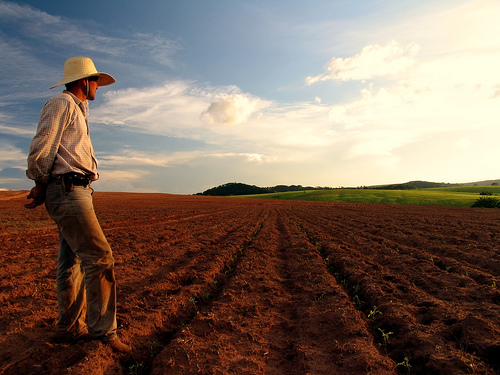MSM Catching On, Now They Call It Food Protectionism as Hungary, Argentina, Moldova and Turkey Ban Grain Exports
Again, they are blaming this on the Ukraine-Russia conflict, but the origin of the issue goes back much further.
Last year, CTH was one of a small number of people talking about the very real possibility of food shortages due to the cumulative effects from regulatory COVID mitigation and the fracturing of the food supply chain that government intervention created. {Go Deep}
 What we are witnessing now is not as much attached to the Ukraine crisis, as it is the continued ripple effects in that same supply chain.
What we are witnessing now is not as much attached to the Ukraine crisis, as it is the continued ripple effects in that same supply chain.
The current grain issues are an outcome of a major supply chain disruption on the manufactured and processed food side, which is now exacerbated by higher replenishment costs and lower yields. Fertilizer costs have skyrocketed due to energy cost increases.
It is a perfect storm.
Without the Ukraine crisis surfacing, the grain (wheat, corn, soybean) and supply chain issues were already going to be a problem, and many of these current mitigation efforts -wrongly being attributed to Ukraine- would have taken placed without any regional conflict. That’s why we predicted these issues last year, long before Ukraine-Russia was in the headlines.
The thing to keep in mind is that some smart governments, especially those nations where the government controls and monitors the food industry, can see these issues long before they surface. If CTH could see these multinational food issues last year, you know the governments of China and Russia could also see them coming. Some might even argue they gamed out the problem and are taking advantage of it right now. {Go Deep}
It’s interesting to see the media use the term “food protectionism” instead of a ‘food war‘, but really what we are now seeing in Europe is positioning amid territorial regions to keep food available. In North America (Canada, U.S. and Mexico), we are blessed with several crop cycles each year. Some nations only get one or two, we have at least three, but we still need the fertilizer.
(Bloomberg) — Governments around the world are taking steps to safeguard domestic food supplies after Russia’s invasion of Ukraine roiled trade and sent prices of key staples soaring.
Hungary is banning grain exports, its agriculture minister told television channel RTL on Friday. Argentina and Turkey also made moves this week to increase their control over local products. And Moldova, albeit a small shipper, temporarily halted exports of wheat, corn and sugar from this month.
Protectionist measures — which already picked up in recent years as the Covid-19 pandemic sparked worries about local supplies and high prices — could spell more bad news for global food trade. The war in Ukraine has brought crop shipments from much of the crucial Black Sea region to a halt, heightening fears of shortages of grain and sunflower oil.
[…] Argentina, a major grain shipper, is creating a mechanism to guarantee wheat supplies for local millers and tame pasta prices. Top flour exporter Turkey boosted the agriculture ministry’s authority over exports of an array of goods, allowing it to make “periodical arrangements” if needed.
Hungary’s ban takes effect immediately, and a government decree will soon be published, its agriculture minister said. The country had sold about 127,000 tons of soft-wheat abroad so far this season.
Elsewhere in Europe, Bulgaria — a much larger exporter — is working on a system to buy grain that can be used to meet its population’s needs, the government said after a meeting with producer lobby groups on Friday. (read more)
Y’all know my lengthy position on this. I have long said that farmland, food, source material, manufacturing and processing, should be considered a national security issue. I do not think the federal government needs to get involved too much, but I do think states should be permitted to control or limit foreign ownership, investment and Big Ag corporate monopoly controls.
It amazes me to see the so-called “experts” that we rely upon, completely incapable of understanding the laws of unintended consequence.
Each seemingly small issue creates another small issue, which creates another small issue, which ultimately pokes holes in the supply. Poke enough holes in enough small categories from manufactured condiments to manufactured drinks, to manufactured cereals, pasta, grains, soups, pet foods, and the complex food processing system overall begins to show the larger problem.
It’s a system collapse by a thousand paper cuts – from the fork all the way back to the field.





Post a Comment